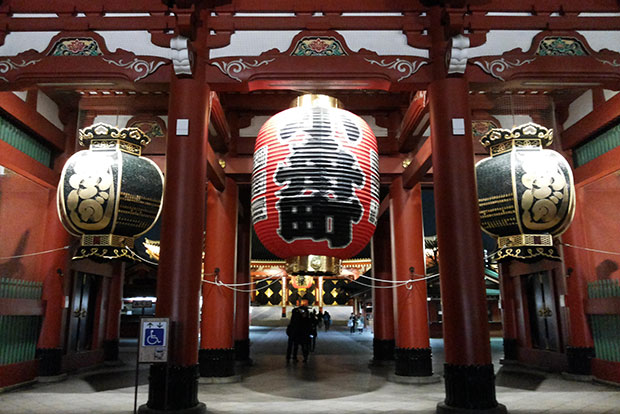
Thai airlines and tour operators are struggling to control the snowballing damage caused by the move by Japan and South Korea to restrict flights by certain Thailand-registered carriers to their nations out of safety concerns.
The affected airlines are tackling the problem, which involves tens of thousands of tickets sold to travel agencies or individual travellers, by providing refunds or transferring passengers to airlines not hit by the curbs.
Their attempts came as the Japan Civil Aviation Bureau (JCAB) showed no sign of reconsidering the ban tabled in Tokyo last Friday after meeting with a Thai team led by Somchai Piputvat, director-general of the Civil Aviation Department, as well as other airline executives.
"The JCAB did not draw any conclusions, saying they would review the explanation given by the Thai team, but not saying when they would give a response," a member of the team told the Bangkok Post over the weekend.
The bureau last week officially notified Thailand's Civil Aviation Department that it would not let Thai airlines add any more service between Thailand and Japan beyond what had already been granted in terms of charter and scheduled service, with no changes of aircraft allowed either.
At the same time, South Korea also discreetly issued a similar ban last week but did not issue a formal notification as in Japan's case.
Tokyo and Seoul imposed the restrictions in the wake of the Thai department's failures to meet international standards for aviation safety in a recent audit by the International Civil Aviation Organization, the UN body that oversees the global aviation industry.
From a traveller's point of view, the ban would cut the number of flights and seats by about 40% and prompt travel agencies to raise tour package prices for those countries by 20% from the current level, said Charoen Wangananont, vice-president of the Thai Travel Agents Association.
Prices of short tour packages to Japan are likely to soar to almost 40,000 baht a person from the 20,000 baht widely offered in the past two weeks.
The rock-bottom 9,900-baht tour package to South Korea will also cease to exist under a scenario in which Seoul remains reluctant to lift the ban, said Mr Charoen, who is also managing director of Kangwan Holiday Co.
He cautioned that the flight restrictions would drag down the number of outbound tourists to Japan and South Korea, forecast at 700,000 and 500,000, respectively, in 2015.
Mr Charoen fears that many small-time Thai tour companies, which rely on selling cheap package tours to those countries, will be driven out of business as a result of the flight restrictions.
"Tour operators are gravely concerned about the credibility of Thai airlines in the eyes of the international community, particularly if the matter spreads to Europe, China and the US, which would have a severe effect on the Thai tourism industry," he said.
NokScoot, Thailand's second long-haul low-cost carrier (LCC), last Friday assumed a "damage control" stance after Japan's ban on its charter flights from Bangkok to Tokyo (Narita airport), Osaka and Sapporo.
The airline has resolved to use its third B777-200 wide-body jet — on lease from Singapore's budget Scoot airline, which owns 49% of NokScoot — to ferry some 20,000 passengers booked on charter flights to Japan.
The fact that the aeroplanes still carry the Singaporean flag, have not yet been re-registered as Thai aircraft and will be flown by Singaporean pilots in accordance with Singaporean operating procedures will enable NokScoot to fly the passengers from Bangkok to Japan.
"That's the best solution we know of to allow us to honour commitments we've made to those who have booked on our flights," NokScoot board member Patee Sarasin told the Bangkok Post.
He insisted that neither Thai nor Japanese aviation authorities had any objection to such arrangements.
"There will be additional costs for pursuing that corrective path that we're not talking about now," Mr Patee said.
Separately, a NokScoot official said the inauguration of scheduled flights from Bangkok to South Korea's Incheon airport, scheduled for May 10, remained on hold.
NokScoot is waiting for the results of discussions between Thailand and South Korea on the issue.
"We understand that South Korea has not made an outright rejection of our flights to that country, so we have not given up hope," Mr Patee said.
Jet Asia Airways, a charter-focused Thai carrier, confirmed that 10 of its 22 extra flights to Japan planned for March 31 to April 18 were affected by Tokyo's ban.
Jet Asia managing director Chairat Sangchan said the airline would find the means to compensate customers and tour agencies.
Thai AirAsia X (TAAX), the country's first long-haul LCC, whose launch of daily service linking Bangkok with Sapporo, set to begin on May 1, is suspended, hopes to see a positive result from the Thai Civil Aviation Department and the JCAB.
"We are still waiting for a final conclusion from the meeting and unable to comment until we have more information from the relevant authorities," TAAX chief executive Nadda Buranasiri said.
An industry executive talked about TAAX possibly using a similar tactic as NokScoot, ferrying those already booked on its Sapporo flight with the help of a sister airline, AirAsia X.
AirAsia X, which carries the Malaysian flag, could fly TAAX passengers to Japan.
Aviation executives are gravely concerned that the action taken by Japan and South Korea will develop into a full-blown curb on all flights, both existing and new, operated by Thai-registered carriers to those countries.
Looking further ahead, they fear that the US, the EU and China could pursue punitive action against Thailand of the type that Indonesia faced in the past.